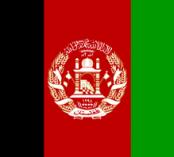
Report from the Agency Coordinating Body for Afghan Relief (ACBAR):
In the preparation for the upcoming elections of the spring 2014, the government of Afghanistan announced that some health facilities and schools had been designated as registration centers for the population and as polling stations.
First and foremost ACBAR members acknowledge that the upcoming election process is a civilian political process, thus non-military, and therefore shouldn’t be targeted under International Humanitarian Law.
However, in the current context of an on-going non-international armed conflict between the Government of Afghanistan, together with its international allies, and numerous, disparate Armed Opposition Groups; the fact that Afghan and international security forces will be involved in the protection of voting centers and the fact that the current political process is strongly contested (and backed by parties to the on-going non-international armed conflict), voting centers present a high risk of being attacked during the process (as it has been the case over the recent election processes in the country).
The current conflict has an increasingly high impact on the lives of the afghan population with health providers being unable to operate properly (permanently or temporarily) in 58 districts of the country, and numerous areas not providing sufficient education opportunities to Afghan children. Consequently, diverting such essential services as education and health for a political process presents several risks and could ultimately result in a permanent loss of access to health facilities or schools for two main reasons.
Firstly, according to International Humanitarian Law, health-care facilities retain their protected status as long as they are exclusively devoted to the care of the wounded and the sick and are not used to advance military goals. Designating health facilities as registration centers and polling stations would thus put the patients and the staff working in these facilities at risks of attacks. This protected status is what allows health-care providers to operate in conflict situations and is at the heart of their mission. It is by operating as neutral, impartial actors that health care providers are able to gain access and respect from all parties to a conflict. In the current context, using health care facilities as a political space would severely harm the perception that other actors and the population have of them. The situation is similar for schools as their use will undermine them being perceived as neutral, impartial and non-military facilities.
The full article continues at http://reliefweb.int/report/afghanistan/protecting-health-care-and-education-facilities-during-upcoming-electoral-process on ReliefWeb’s website.

